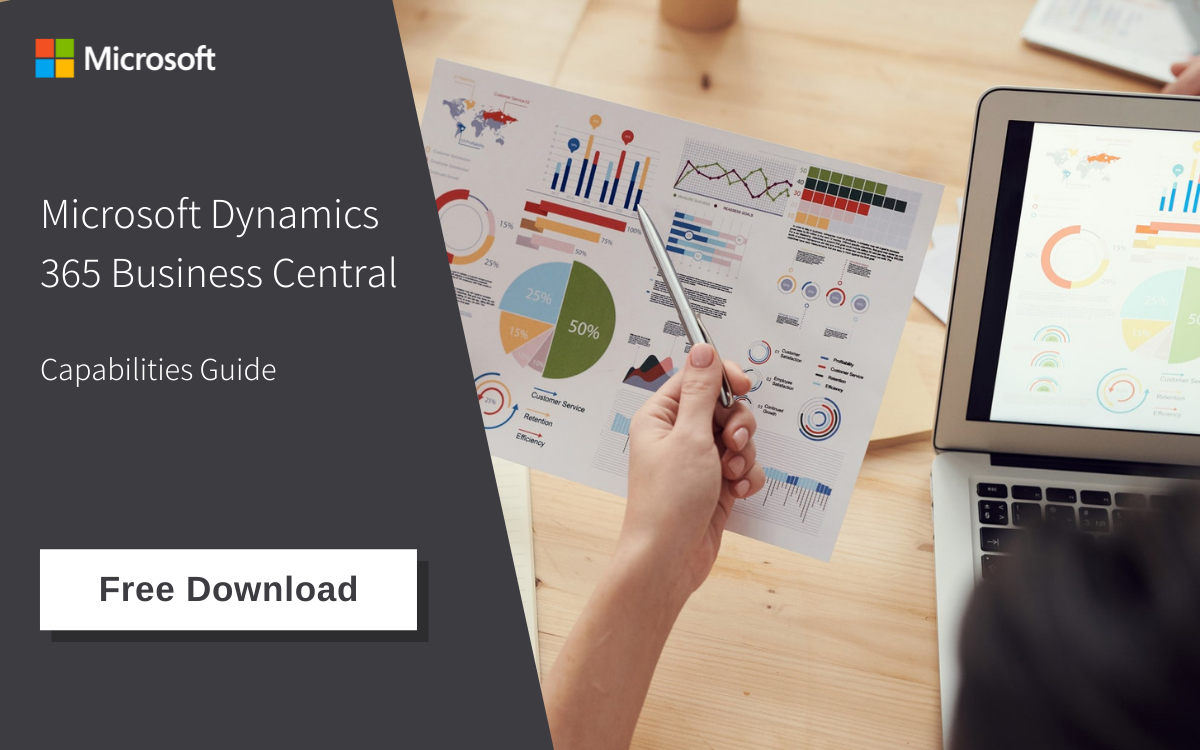Looking to change your company’s legacy system but unsure how Microsoft Dynamics 365 Business Central and Microsoft Dynamics 365 Finance & Operations differ from each other?
In this post, we’ll break down what each solution offers, how they differ, and which one is better suited for your business.
Introducing Microsoft Dynamics 365 solutions
What's Microsoft Dynamics 365 Business Central?
Microsoft Dynamics 365 Business Central is an all-in-one cloud Enterprise Resource Planning (ERP) solution designed for small to medium-sized businesses (SMBs). It integrates key functions from accounting, supply chain, sales, and operations into one user-friendly platform.
Overview of Microsoft Dynamics 365 Business Central; Source: Microsoft Dynamics 365
With built-in capabilities for financial management, supply chain operations, customer relationship management, project tracking, and reporting, Business Central helps users streamline processes and make smarter decisions with real-time data. Its seamless integration with Microsoft 365 and the Power Platform also enhances collaboration across the organization.
With the built-in Copilot in Business Central, users can simplify daily operations, reduce manual data entry, and access relevant information faster through natural language prompts.
What's Microsoft Dynamics 365 Finance and Operations?
Microsoft Dynamics 365 Finance and Operations (or otherwise known as Dynamics 365 Finance + Dynamics 365 Supply Chain Management) is a more advanced ERP suite tailored for large enterprises or businesses with complex operations. It handles global financials, compliance, manufacturing, procurement, order management and more.
Introducing Dynamics 365 Finance's features; Source: Microsoft Dynamics 365
With Microsoft Dynamics 365 Finance and Operations, business leaders can gain full visibility into the financial health of their large enterprises, drive business strategy with real-time insights, and convert regulatory compliance measures in various markets into new business opportunities.
Discover how Dynamics 365 Supply Chain Management can value-add your business; Source: Microsoft Dynamics 365
Additionally, the platform uses predictive analytics, drawing on data from inventory, warehousing, manufacturing, service, and logistics to drive smarter, data-driven decisions for efficient warehousing.
How are they different?
|
Feature |
Business Central |
Finance & Operations |
|
Suited for |
Small to medium businesses |
Large or global enterprises |
|
No of minimum users required |
1 |
20 |
|
Deployment Options |
On-premise / Cloud |
On-premise / Cloud |
|
Cost |
More affordable |
Higher cost (licensing + implementation) |
|
Scalability |
Scales for SMB growth |
Scales globally across large enterprises |
|
Implementation Timeframe |
Moderate for smaller businesses |
May be lengthy due to complex requirements |
|
Customization |
Moderate |
Extensive, supports complex business logic and configuration options |
Which One Is Right for You?
Choose Business Central if:
- You’re a growing small or mid-sized company
- You’re transitioning from a basic accounting system
- You need an affordable ERP with room to scale
- Your operations are relatively straightforward
Choose Finance & Operations if:
- You’re a large enterprise with global operations
- You need detailed financial compliance and auditing
- You manage a complex supply chain or manufacturing process
- Your organization requires advanced business intelligence and automation
Both Business Central and Finance and Operations are powerful ERP solutions under Microsoft’s dynamics 365 ecosystem / suite of applications. The key lies in aligning the solution with your business’s size, complexity, and long-term goals.
If you’re unsure which is the best fit, working with a Microsoft Dynamics partner like us can help guide decision based on your business requirements.
Fill in the form below and speak to our consultants today.




